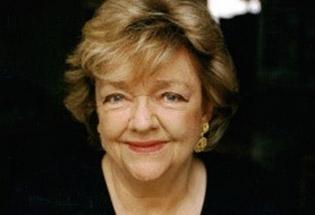Irish artists lend support to local protests against library closure

As the recent budget cuts are felt by local communities, Irish artists have lent their support to what they see as unjust closures of important amenities.
On Saturday, famous faces joined the local community to protest the closure of Sallynoggin library, which is being implemented by Dun Laoghaire/Rathdown County Council as a result of government budget cuts.
Arguably Ireland’s most famous folk musician and songwriter, Christy Moore, was eager to voice his opposition to the closure of Sallynoggin Library. "I oppose the proposed closure of Sallynoggin Library as I believe it is an attack on an already deprived community," said Moore. "Any necessary cutbacks should be spread evenly across the County and not hoisted upon one small district. The proposal is unfair and totally unacceptable."
Award-winning novelist Maeve Binchy said: "A library is like a gateway for the imagination we can go through and find a whole new world. Nobody should shut those gates."
Other notable figures that have lent their support include IFTA award winning director and leading Irish playwright, Conor McPherson, television and film actress Sinead Cusack and Colm Lynch, a local musician who has been nominated for a Meteor Award.
Many residents feel that Sallynoggin Library provides much needed services for the local community. "Although the library isn’t fully part of Sallynoggin College, a lot of students use this service," said Karl Gill, student president at Sallynoggin College.
Dun Laoghaire/Rathdown County Council defended the closure, saying that Sallynoggin Library is being closed because it was not used as much as other local libraries. The council will also be helping to set up a volunteer based book lending club to replace the current, more extensive service. "The alternative service will be more flexible in that it will be Council led but community run and will also hopefully address the very poor usage of the existing facility," said local councillor Richard Humphreys of the Labour Party.
 Yet many residents do not feel that this is enough. They point out that the library serves a very disadvantaged area and that its closure will mean that some of the poorest will be hard hit. "I have a daughter who found it very hard to buy books when she entered third-level education," said Mr. Friel from Macintosh Park. "Knowledge is for everybody – it’s not the preserve of those who can afford it."
Yet many residents do not feel that this is enough. They point out that the library serves a very disadvantaged area and that its closure will mean that some of the poorest will be hard hit. "I have a daughter who found it very hard to buy books when she entered third-level education," said Mr. Friel from Macintosh Park. "Knowledge is for everybody – it’s not the preserve of those who can afford it."
(Picture: Locals took to the streets in Sallynoggin to protest library closure)
Local libraries in disadvantaged areas provide many services for the local people. Many in these communities cannot afford to pay for high-speed internet connections – especially since these areas have been hit hard by unemployment. If members of these communities are attending second or third-level education, local libraries can provide them with sorely needed internet access. As one protestor commented: "How do you expect to have an information economy if some people have no access to information?"
Local libraries are also used by children attending primary school as a quite place where they can do their homework. Indeed many of those that attended Saturdays protest were mothers with young children.
In the wake of harsh budget cuts, libraries across the country may see their doors close or their opening hours slashed. Closing libraries in disadvantaged areas will make it that much more difficult for underprivileged people to lift themselves out of their impoverished circumstances.
